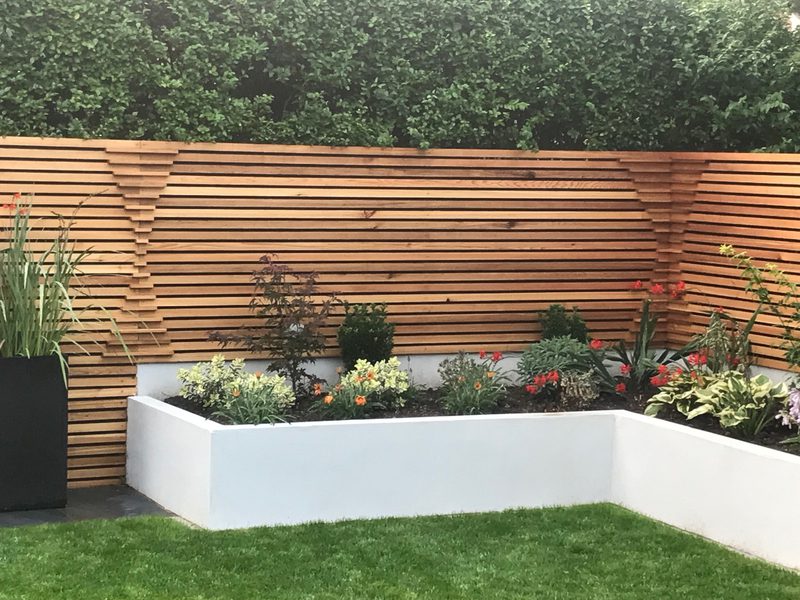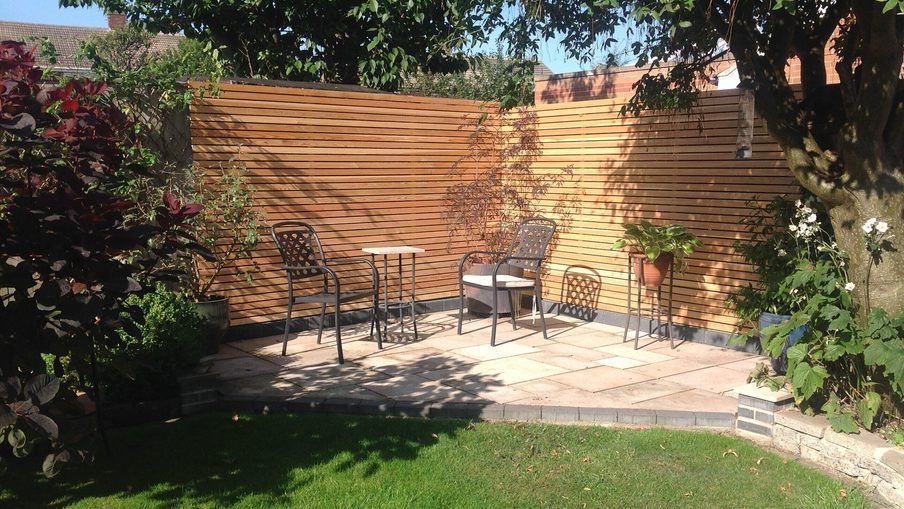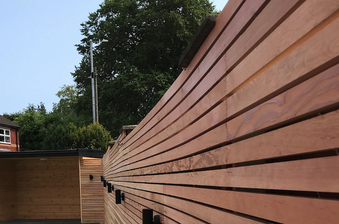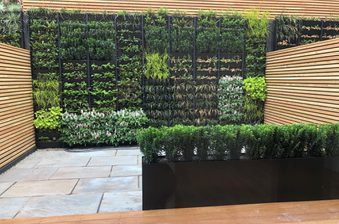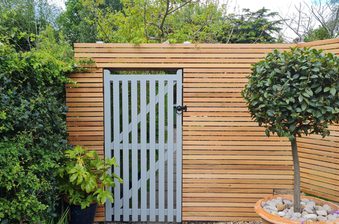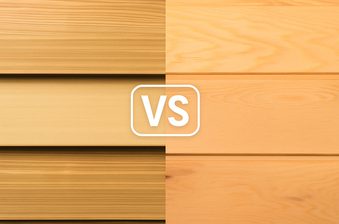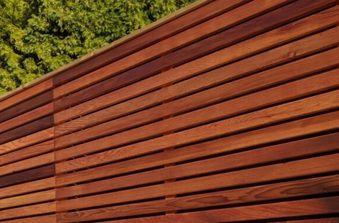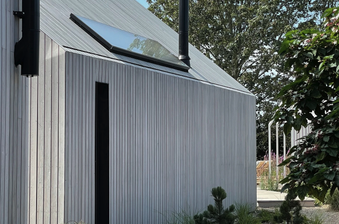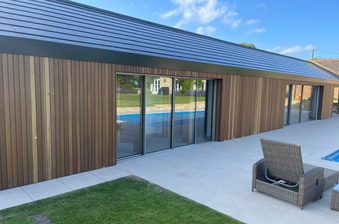If you’re looking to create that ideal enclosed space or define your property, these two often come top of the list. Their physical, technical and aesthetic attributes lend themselves perfectly to the job.
Cedar and larch boast a number of important natural properties — as well as an attractive appearance — making them both perfect for fencing. The key difference is cost; larch usually comes in at a cheaper rate than cedar, although cedar is still affordable for most projects.
Let’s take a look at the properties of both.
Cedar fencing
Cedar can be used to refer to many types of wood, but possibly the most popular species is Western Red Cedar. It originates from British Columbia.
Simply put, Western Red Cedar ticks all the right boxes for the task of fencing. A famously durable timber that machines excellently, cedar also contains natural oils that protect it from rot and fungus. It’s lightweight, highly stable and decorative.
Also, did you know that Western Red Cedar has a pleasant aromatic scent that it can retain for many years? Typical colours for Western Red Cedar include light golden-brown through to a darker brown. Some may even have a reddish tint — a gorgeous choice for fencing
- Technical: Western Red Cedar machines very well, has great workability and finishes well.
- Physical: Natural oils that give it protection from decay and fungal attack; a highly durable wood for external use. Lightweight and smooth.
- Aesthetic: Famed for the contemporary look it gives, cedar combines interesting grain patterns with a warm red, brown and pinkish colour range.
Left untreated, Western Red Cedar will weather to a distinguished grey, but there’s also the option to UV protect, stain or paint — the species takes finishes very well. We’ve even written a blog post about the treatment options you have for Western Red Cedar.
To avoid corrosion on the fixings as well as the cedar staining, make sure to use stainless steel nails.


Larch fencing
One of our most popular larch species is Siberian Larch. It originates from — you guessed it — the forests of Siberia, Russia. Another is European Larch.
With excellent physical properties, larch is extremely well suited to exterior application — cladding, decking and fencing. As well as working well and being durable, larch has natural physical properties that protect it from insect attack and rot.
Despite being a softwood, Siberian Larch grows very slowly, making it extremely hard and dense; it’s often seen as a cost-effective alternative to Western Red Cedar. If your project is much larger, or you’ve got an eye on keeping costs down, Siberian Larch is a safe bet.
- Technical: Can be sawn and machined very easily.
- Physical: A fantastically durable timber with natural resin, giving it excellent fungal and rot resistance. Resistant to knocks, scrapes and general wear and tear.
- Aesthetic: A beautiful, warm straw yellow-to-orange shade, with gorgeous texture and colouring.
Larch is a low-maintenance timber species, but over time it will weather to a beautiful grey if left untreated. However, if you aren’t wanting it to grey there are plenty of treatment options for larch fencing.
Oh, and like with cedar, make sure to use stainless steel fixings to avoid corrosion and staining.
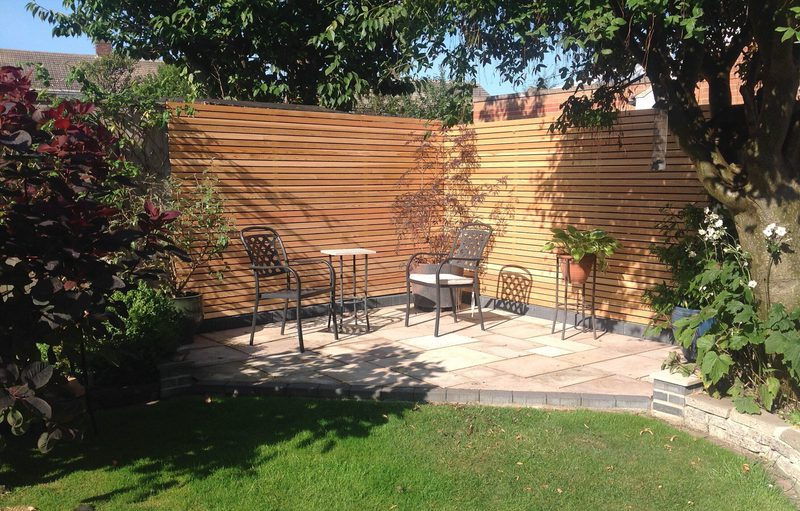

Cedar and larch fencing: project inspiration

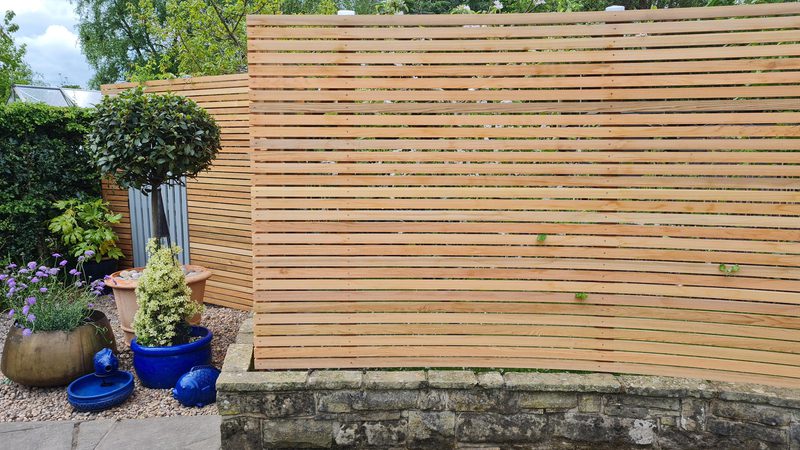
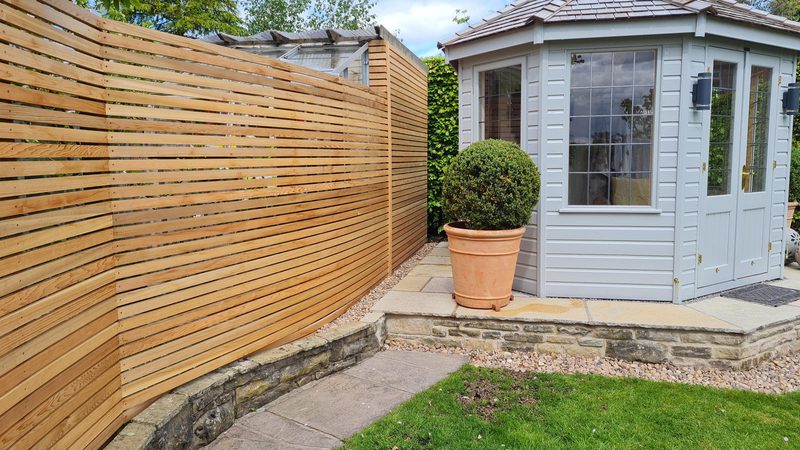
Full case study: Western Red Cedar Designer Slatted Fencing Project
V-Groove board and framed cedar fence.
Horizontal Cedar Batten Fence.
Shadow Gap Siberian Larch.
V-Groove Western Red Cedar.
Mixed width cedar fencing.
Planning a cedar or larch fencing project?
We offer a range of high-quality Western Red Cedar and Siberian Larch designer slatted fencing — as well as other popular species.
For more specific fencing-related questions, or to discuss your next project, our friendly timber team are always on hand — drop us a line!
